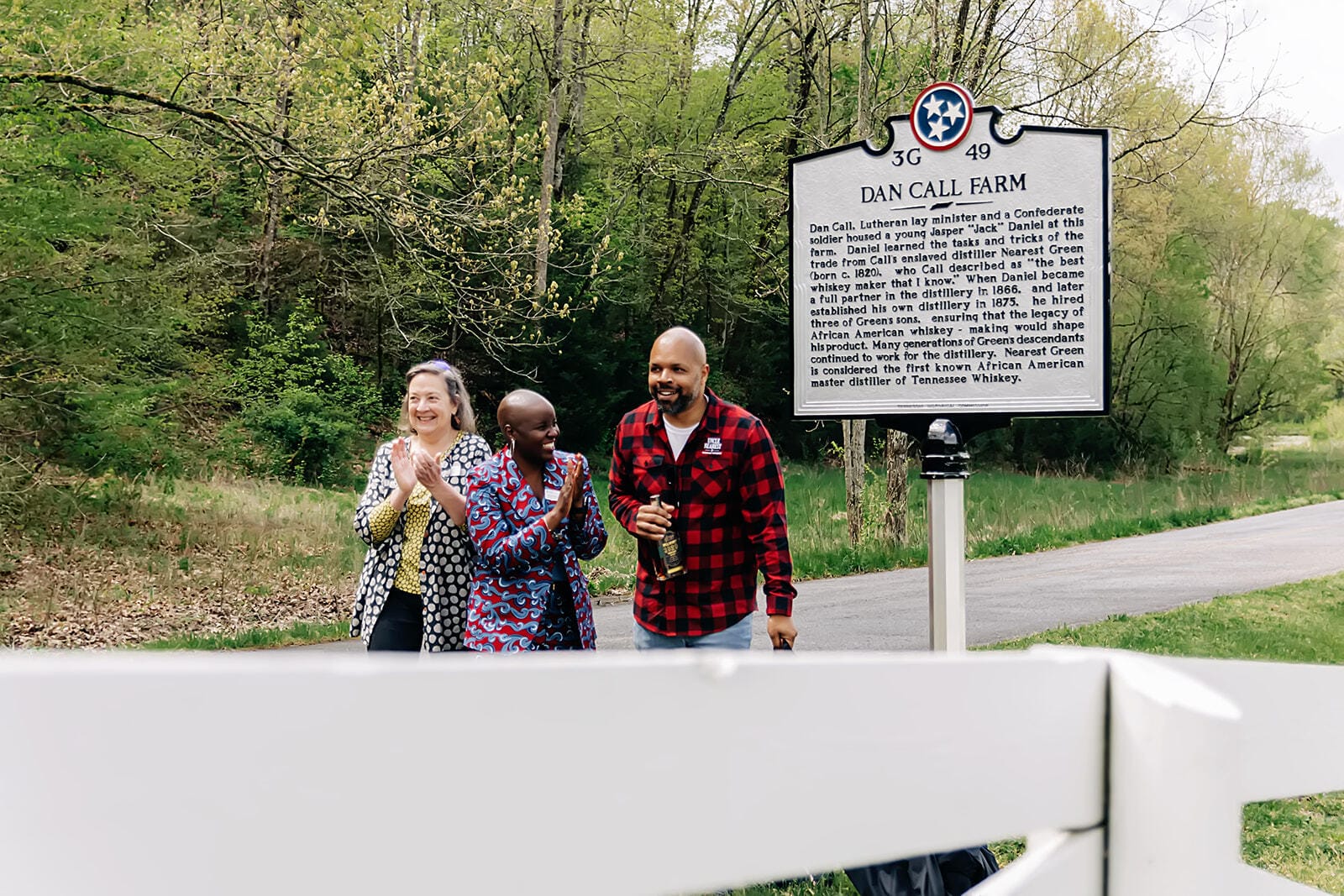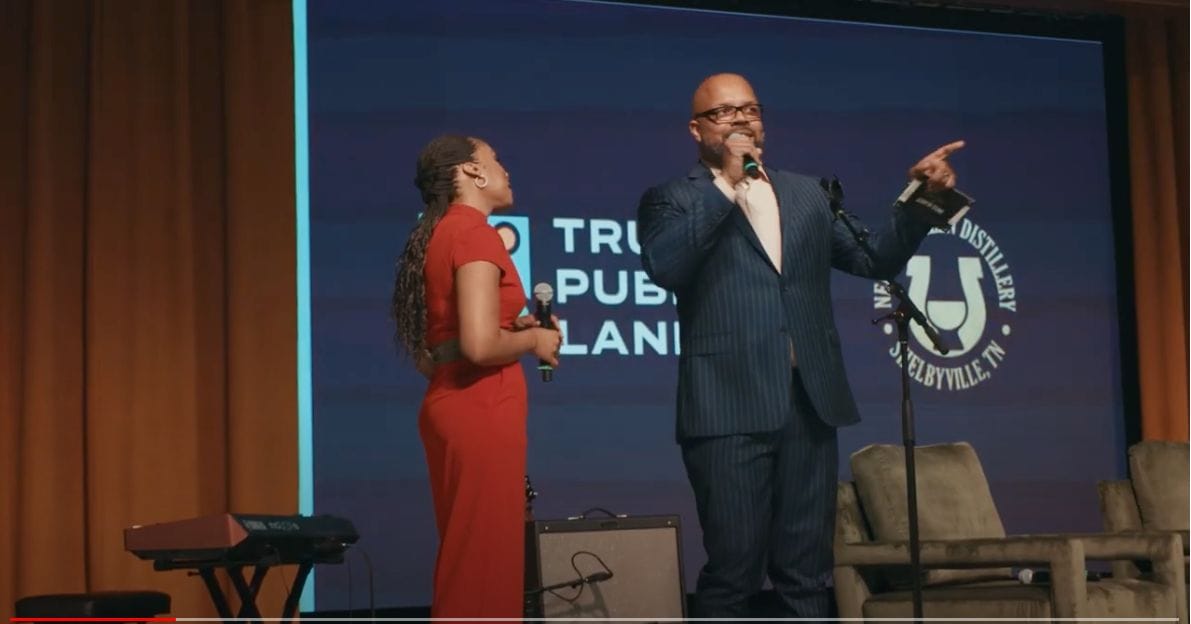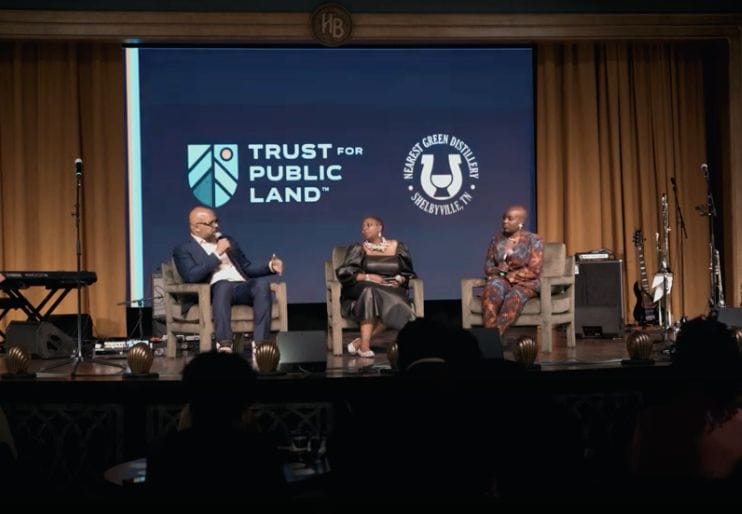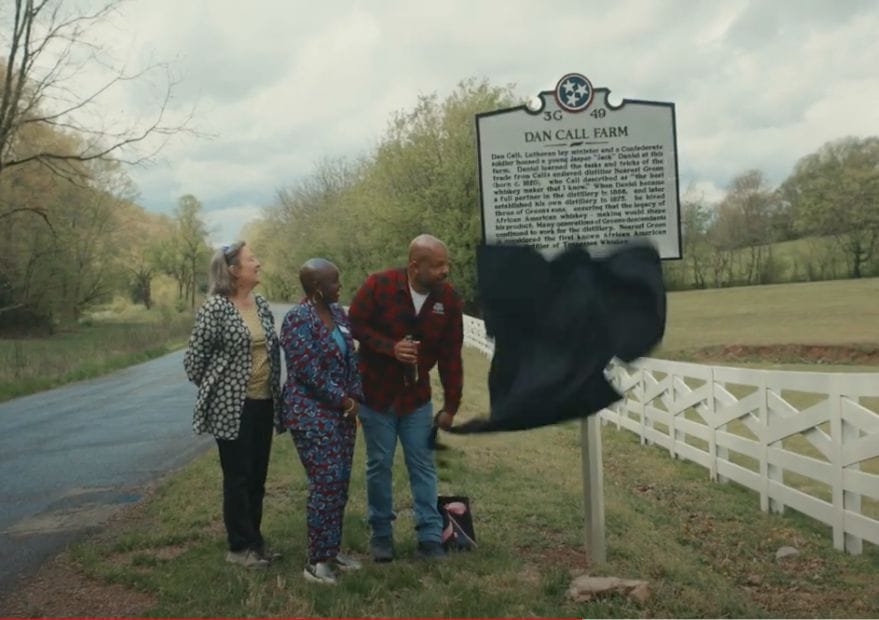Trust for Public Land hosted a celebration of Black history and culture at the Nearest Green Distillery in Shelbyville, Tennessee, on April 14, 2023, with generous support from conservation partners and industry supporters. The distillery’s namesake, Nearest Green, was a formerly enslaved man who taught Jack Daniel how to distill whiskey in the 1800s. His story—one among many about the American Black experience—has been largely untold until only recently. The Nearest Green Distillery is helping to ensure his legacy and this important chapter in American history are never forgotten.
Spaces hold meaning. They play a critical role in constructing our collective memory, and they guide what we value as a society. Our Black History and Culture initiative strives to preserve and protect important Black historical and cultural sites that speak to a more complete record of the Black experience in America.
Trust for Public Land and partners are working to preserve, create, and activate sites like this, including:
- Emmett Till Campus/Sustainable Square Mile: Blacks in Green (BIG) has conceived a community development concept it calls the Sustainable Square Mile, an economically self-sustaining and walkable village designed to build Black wealth and power. Trust for Public Land is supporting BIG’s efforts to create a series of 16 gardens across Chicago that honor luminaries of the Great Migration. The first of these is the Mamie Till-Mobley Forgiveness Garden, a converted vacant lot that not only offers a place for healing and respite, but also features a first-in-America Prairie Rainwater Parkway Garden, revolutionizing green infrastructure norms.
- Medgar and Myrlie Evers home: The Evers were both activists in the civil rights movement and targets of racist violence. Medgar, one of the first national civil rights leaders assassinated, was killed outside of his home in 1963. The home, located in Jackson, Mississippi, is now undergoing preservation efforts and continues to be a symbol for civil rights and social justice issues.
- Prince Hall Masonic Temple: This historic Atlanta building used to house the offices of Martin Luther King Jr.’s Southern Christian Leadership Conference and WERD, the first Black-owned radio station in the U.S. Partners are beginning the work to restore the building and incorporate voices of community members and the civil rights movement.
- Rosewood Museum: The future museum will be designed as a place of remembrance and education to honor the victims, survivors, and descendants of Rosewood, Florida, a vibrant Black community of 300 before it was destroyed by white perpetrators in a racist massacre in 1923.
- Stringer’s Ridge Cemetery: Nearly lost to history, this rediscovered field cemetery is the final resting place of at least two U.S. Colored Troops veterans and Alfred Blount, the first Black man lynched from the Walnut Street Bridge in Chattanooga, Tennessee.
By thoughtfully preserving these historic sites and many others, we can elevate the stories of Black Americans to their rightful place. There is urgency to this work: Giants of the civil rights and Black radical movements are in the sunset of their lives. There are sites of enormous importance decaying and crumbling before our eyes. And most disturbingly, today there is a deliberate effort to deny and erase voices and stories of the Black experience from our history. It’s our mission to serve as an antidote to this erasure by embracing the whole truth—as complicated and uncomfortable as it may be—and reflecting it in the landscapes we hold so dear. We do this by reaching out, supporting, investing, listening, and working with communities to create and build places that matter to millions of people. When we get that right, it allows the full human experience—the pain, the courage, the joy, and the hope—to burst forth.
The celebration was made possible by Keith and Fawn Weaver and the teams at the Nearest Green Distillery, the Dan Call Farm, and Humble Baron.
Want to learn more? Meet the leaders behind our Black History and Culture work.
One-third of Americans, including 28 million children, lack safe, easy access to a park within a 10-minute walk of home. Urge your senators to allocate funding to create parks and enhance outdoor recreational opportunities by championing the Outdoors for All Act today!
Trust for Public Land hosted a celebration of Black history and culture at the Nearest Green Distillery in Shelbyville, Tennessee, on April 14, 2023, with generous support from conservation partners and industry supporters. The distillery’s namesake, Nearest Green, was a formerly enslaved man who taught Jack Daniel how to distill whiskey in the 1800s. His story—one among many about the American Black experience—has been largely untold until only recently. The Nearest Green Distillery is helping to ensure his legacy and this important chapter in American history are never forgotten.
We celebrated our Black History and Culture initiative at Nearest Green Distillery hosted by Keith Weaver and Fawn Weaver, emceed by Christy Joy Meeks and featuring TPL President and CEO Diane Regas. We are so fortunate to have Keith our national board and as chair of our Black History and Culture (BHAC) Advisory Council. He joined a lively discussion with BHAC National Director, Dr. Jocelyn Imani and BHAC Advisory Council Member Miki Woodard to share the vision of this important work to preserve, protect, and activate historical sites that tell the complete story of Black Americans before they are lost forever.




